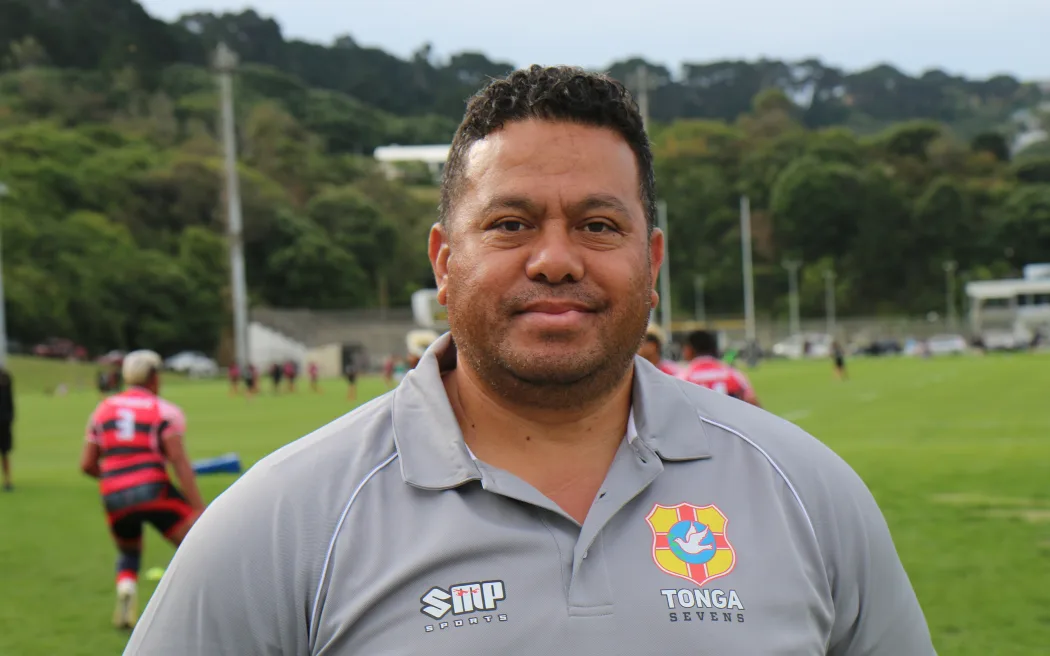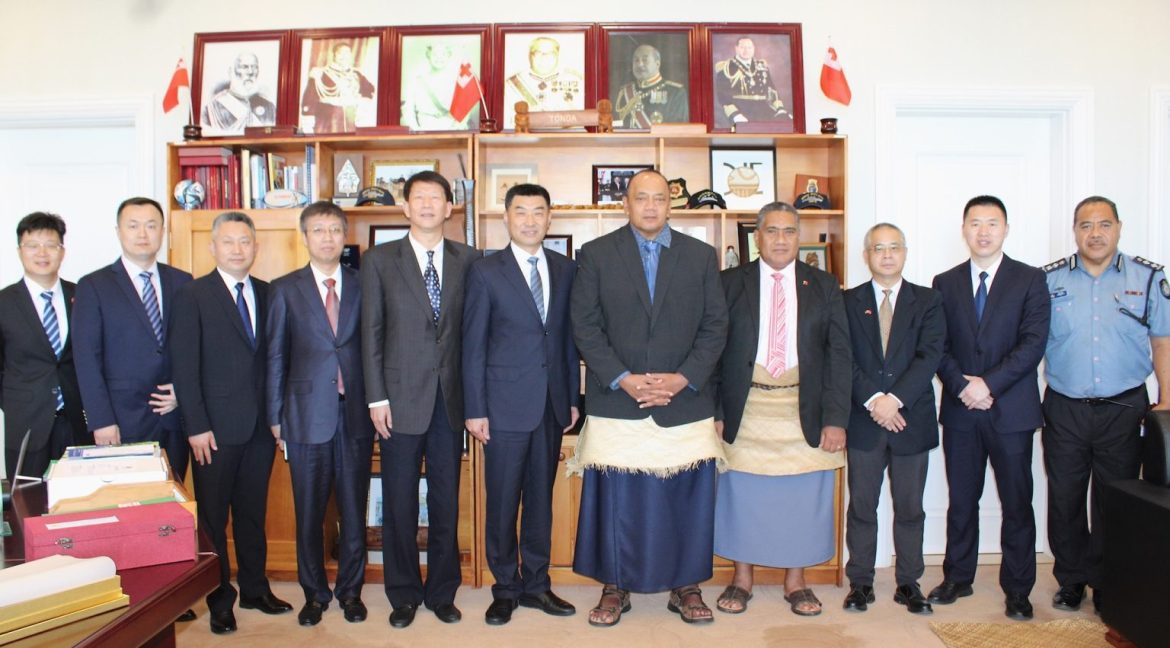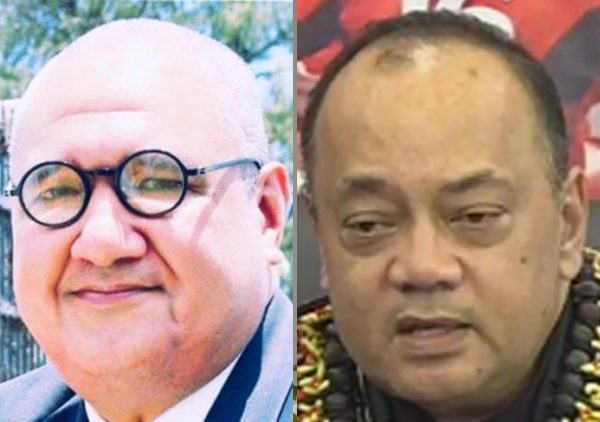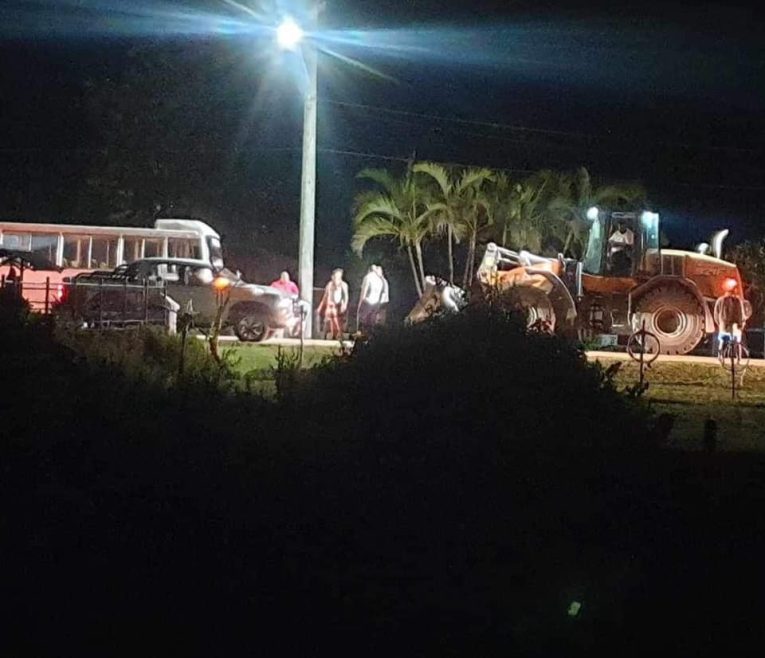By foreign affairs reporter Stephen Dziedzic, ABC
- In short: The document says Australia and New Zealand are “far removed from Pacific realities” and frequently use “condescending rhetoric”.
- One expert says the document shows frustrations felt in the region towards the larger nations.
- What’s next? New Zealand says it still has objections to the security pact, while Australia’s Department of Foreign Affairs and Trade has not yet commented
A leaked document from Tonga’s Foreign Affairs Ministry shows that officials in the Pacific Island country sharply criticised Australia and New Zealand’s response to the security pact signed by China and Solomon Islands, while declaring that Pacific diplomacy from Western nations was “failing”.
In 2022, the Morrison and Ardern governments tried to rally Pacific nations to press Solomon Islands not to sign the vaguely worded and deeply contentious agreement with Beijing – in part because they feared it would allow Beijing to establish a military presence in the country.
The pact was signed by Solomon Islands’ Prime Minister Manasseh Sogavare, who is promoting his pro-China stance as a key pillar in his bid for re-election as the country heads to the polls next week.
The ABC has now obtained a strongly worded assessment of the strategic situation, penned by officials in Tonga’s Foreign Ministry in the first half of 2022, that was intended to guide the Pacific island nation’s response to the controversy.
The five-page document calls New Zealand’s response to the Solomon Islands-China security agreement “nothing short of frantic” and flags that its then-foreign minister Nanaia Mahuta had requested a phone call to her Tongan counterpart to express Wellington’s “grave” concerns about the pact.
“The views expressed by ANZ [Australia and New Zealand] on the situation in the Solomon Islands that only they (or the Pacific) can decide which countries Pacific states should align themselves with,” the document says.
“This clearly shows they remain far removed from Pacific realities and only echoes the condescending rhetoric that we, unfortunately, see too often from ANZ leadership.”
The document acknowledges China’s “growing clout” in the region and says many Pacific island states are facing “threats to strategic independence as a result of growing indebtedness to Beijing”.
But it says that in the end, Solomon Islands is a “sovereign nation and has the right to make decisions about its own security”.
“Tonga should continue to promote that fact including the territorial integrity and sovereignty of states,” it reads.
The document also says then-Australian prime minister Scott Morrison had “taken it upon himself to place phone calls to his PNG and Fijian counterparts to put pressure on the Solomons not to sign the Agreement with China.”
“FM Mahuta will likely speak along the same lines tomorrow to our Minister.
“However, it is highly unlikely either PNG or Fiji would condemn Solomon’s sovereign decisions by nature of their close historical and cultural links.”
The document also says that in the end, the matter would be dealt with by the Pacific Islands Forum leaders meeting that year, which would be a more “acceptable channel” than “reactionary demands over the telephone”.
It adds that Mr Morrison’s lobbying phone calls would likely “irritate” Pacific states, particularly because Australia was “outright refusing to accept Pacific Leaders’ concern over climate change as the single greatest threat to the Pacific’s security and further refusing to limit emissions”.
And it argues that if the West were unhappy about China’s growing role in the Pacific then it would “only need look back at their Pacific rhetoric and their failure to live up to their respective Pacific diplomatic strategies to find solutions” to the region’s pressing problems.
The document also takes aim at Australian and Western media outlets over their coverage of China and the Pacific, accusing them of being “obsessed” with China’s presence in the region.
But despite its acknowledgement of Beijing’s expanded ambitions in the region, it devotes no time to assessing what China’s strategic, political or military aims might be in Solomon Islands or in the Pacific.
Document shows ‘disconnect’
Dr Anna Powles from Massey University told the ABC that the document reflected the “disconnect” between how Australia and New Zealand perceived the “Pacific family” and the “frustrations felt in the region” towards the two larger nations.
“The document captures the tensions between how some Pacific nations view strategic competition in the region and the geopolitical anxieties held by Canberra and Wellington,” she said.
“It reveals that deep reservations about the China-Solomon Islands security agreement are held by some Pacific governments, but also suggests that the way in which Canberra and Wellington responded to the security deal lacked sufficient understanding of astute Pacific diplomacy.”
Dr Powles said while there were some “contradictory” messages in the document, it nonetheless “challenged the assumption in Canberra and Wellington that Australia and New Zealand should be the region’s primary security providers, and in doing so sends a clear message that alternative security actors are welcome in the Pacific.”
New Zealand’s response
A spokesperson for New Zealand’s Ministry of Foreign Affairs and Trade told the ABC that it was “for Tongan officials to determine how they brief their ministers”.
“New Zealand’s objections to Solomon Islands and China’s secretive security pact have not diminished. We see that agreement as unnecessary and unwelcome,” they said.
They added that Pacific leaders had “repeatedly affirmed a strong commitment to support each other to meet the region’s security needs” and New Zealand remained “firmly committed” to that principle.
“We will continue to take opportunities to caucus with our Pacific partners, bilaterally and in regional forums, on issues of shared concern or significant regional impact,” they said.
The Department of Foreign Affairs and Trade has not yet responded to the ABC’s request for comment.
This story was first published by the ABC.










